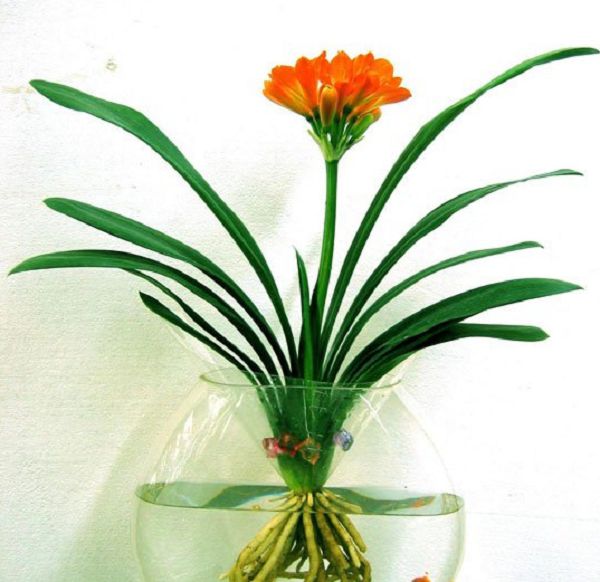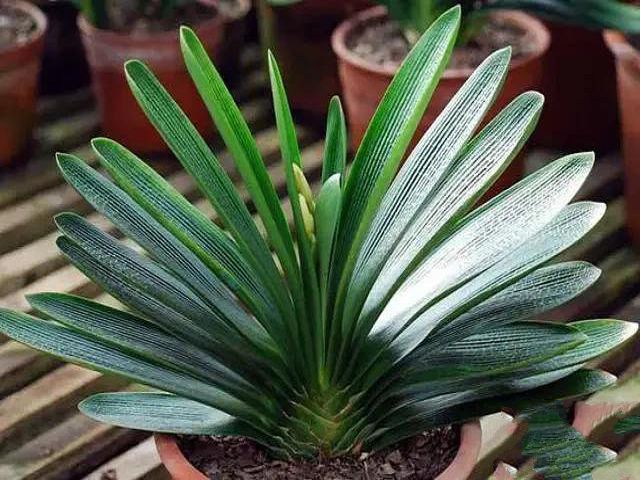How to maintain the magnolia in spring
Early spring, clivia after hibernation, the root system began to recover. Due to the lack of nutrient supply, once exposed to the sun, the leaves will appear dehydration phenomenon, so that its brightness decreases, hardness, thickness decreases, and even yellow leaves, rotten leaves, etc. in serious cases.
Therefore, more attention should be paid at this time:
① Clivia drought-tolerant and moisture-tolerant, pots and plants can be kept generally moist, too much watering, easy to rot roots. Before the arrow blooms, avoid spraying water.
② Apply fully decomposed liquid fertilizer once a week or half a month, but on the principle of applying thin fertilizer frequently, avoid applying thick fertilizer or raw fertilizer, and avoid leaf charring and rotten roots.
If the maintenance is a seedling, the insulation glass can be gradually removed to gradually adapt to the environment.
At the same time, the spring weather is changeable, often changing days, continuous cold, stamens easy to mildew. Because shading is not timely, the leaves are easily burned by sunlight, causing sunburn (yellow and white leaves) and causing anthrax. Clivia is prone to anthrax in spring for two reasons:
① Insufficient water, dry roots, high room temperature, strong sunshine, easy to cause this disease.
② Too much water, poor root respiration, accompanied by rotten roots, leaf transpiration is not smooth, but also easy to cause this disease.
Prevention and control measures:
① Pour the basin, check the root system, remove the rotten root, replace the new flower soil and the new basin (the washed old basin can also be used), pour water thoroughly, and place it in a ventilated semi-shady place.
2 immediately cut off the rotten leaves, this disease develops rapidly, infectious, home flowers can also be less, if in the northern flower cellar, will spread quickly. Cutting off diseased leaves is one of the most effective control measures.
Spring is also a good time for clivia to change pots. The combination of big orchid changing pots and ramets, the seedlings squatting in time after soil change, the seedlings after exercise are solid, thick and bright, and have strong disease resistance. At the end of spring, temperature control, humidity and nitrogen reduction were carried out to prevent excessive growth of seedlings.
1. Management and maintenance of Clivia flower stage. Spring, is the balcony Clivia full bloom. Clivia flowers half of the time, it is best to move to indoor viewing, one is to give full play to the ornamental value of Clivia, more important, this period, gentleman orchid has been colored, no longer need sunlight exposure, and, after flowering, rare light, but also conducive to extending flowering, less watering without fertilization, pot soil to keep a little dry is appropriate, must not topdressing. Clivia flowering, if the fertilizer is too large, easy to cause flowers and buds do not bear fruit.
2. Management and conservation of Clivia after flowering. After flowering, it is a very critical period for Clivia management. Whether the management measures are appropriate or not directly affects the next flowering. One is to cut off the flower arrow. Cut it at a distance of five or six centimeters from the base of Clivia, wrap the Clivia flower arrow with tissue paper, cut it from above the tissue paper, so that the liquid flowing out of the flower arrow stays on the tissue paper and avoids flowing into the middle of the leaf bud. This altar master does not recommend changing pots in spring. After the gentleman orchids, the nutrients are exhausted, and a cultivation period is urgently needed. Changing pots at this time is not conducive to plant growth.
3, Clivia spring temperature and light. Clivia is maintained on the balcony, and spring is the golden age. Truth be told, temperature and light do not require any concern of the owner. As long as the potted plant is placed on the balcony to the north, the height is slightly lower than the window, pay attention to it must not be higher than the window, the potted plant position is too high, the sunlight does not reach the pot soil, which is not conducive to the increase of temperature.
4. Water and fertilizer management of Clivia in spring. A week or so after cutting off the flower arrows, the first topdressing should be carried out on Clivia. This topdressing is mainly nitrogen fertilizer, and a small amount of compound fertilizer can be sprinkled around the flowerpot. The most ideal is bean cake liquid fertilizer. This time the concentration is slightly higher. Because clivia flowers after Xie, is the growth season of new leaves, leaves can grow out of the state, the key in this January or so. Therefore, the focus of conservation is on leaf cultivation. Half a month later, the plant for the second time topdressing, concentration should be light, pay attention to nitrogen, phosphorus and potassium mixed use. The leaves are almost mature and have begun to bear buds. The third topdressing, which is also the last time in spring, is arranged during the beginning of summer and mango planting period, combined with watering, a small amount can be used, because since then, into the hot summer weather, excessive fertilizer in the pot soil, easy to cause the pot soil to heat, Clivia will rot roots.
5, Clivia spring disease control. Clivia flowering soon after the end of the period is the weakest Clivia physique, so timely disease prevention is very necessary, can be sprayed on the leaves of green leaves such as evil mist for control. For specific operation, refer to the instruction manual.
- Prev

What kind of medium is suitable for soilless cultivation of Magnolia?
What kind of medium is suitable for soilless cultivation of Magnolia?
- Next

The gentleman orchid is raised very well, but it doesn't blossom year after year.
The gentleman orchid is raised very well, but it doesn't blossom year after year.
Related
- Is the orchid suitable for indoor use? Is it good for the body?
- How to prevent the empty root of orchids?
- What to do after the crab claw orchid is withered?
- Why are the leaves of orchids always yellow? Fertilizing and watering.
- Can the root of the gentleman orchid be saved if it is rotten?
- Diagnosis and treatment of cotton-blowing beetle insects in Cymbidium
- There is a way for a gentleman's orchid to rot.
- What is the most suitable temperature and humidity for the orchid?
- How to raise a gentleman's orchid? Cultivation techniques of Cymbidium
- How to prepare the nutritive soil for the cultivation of Cymbidium

